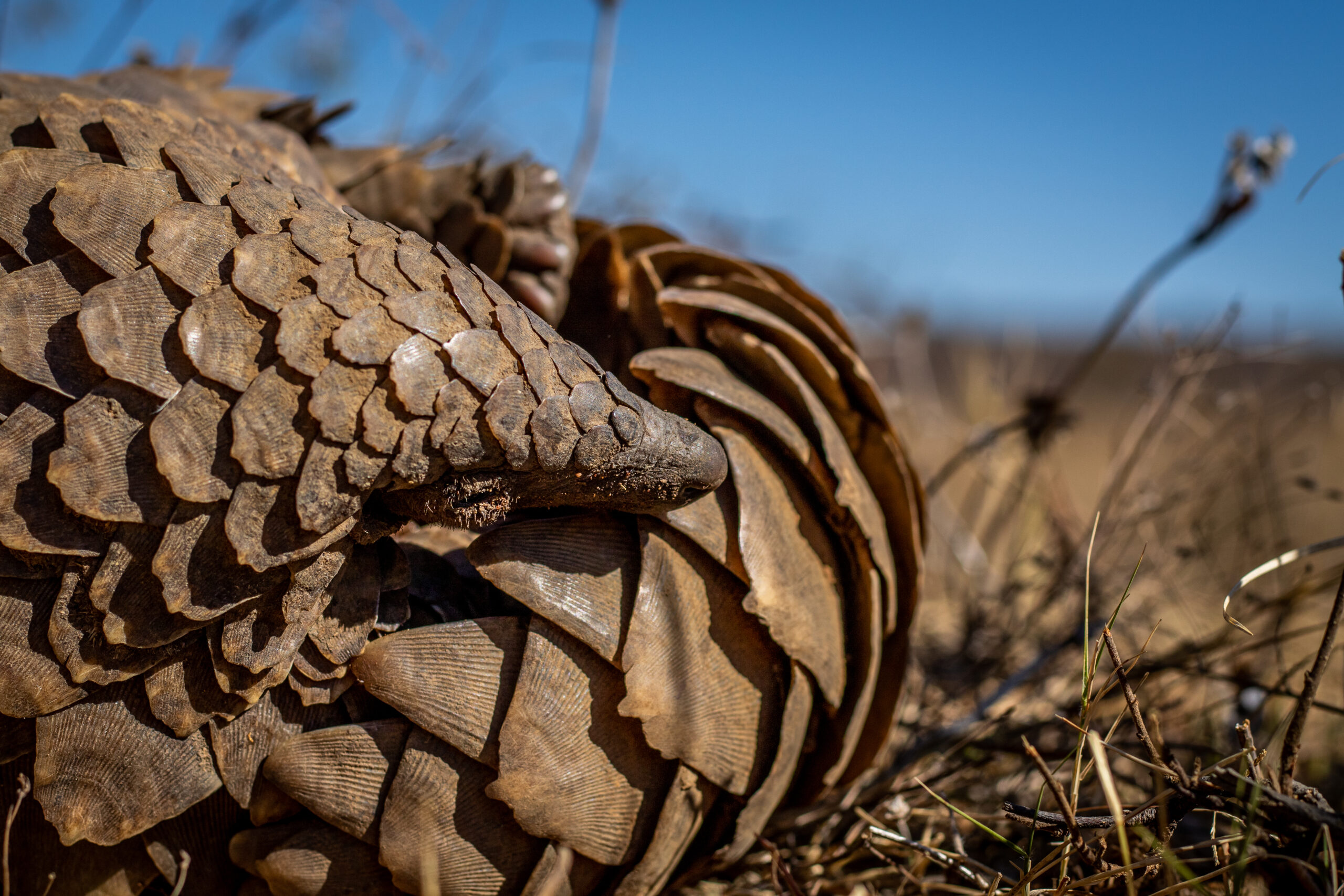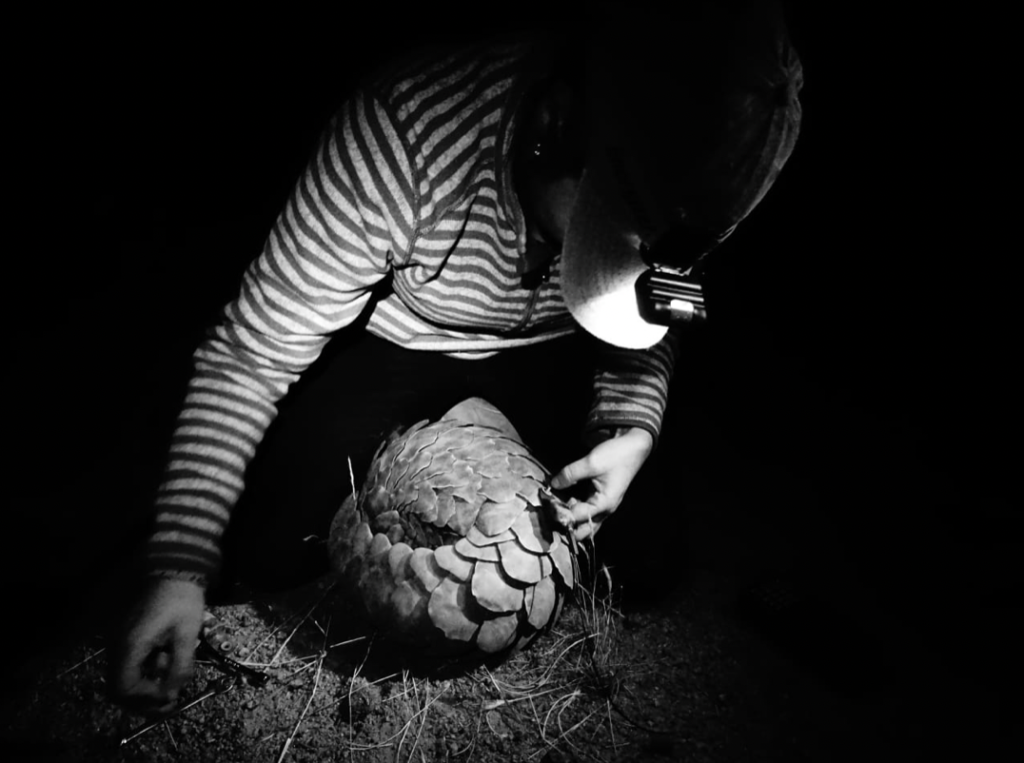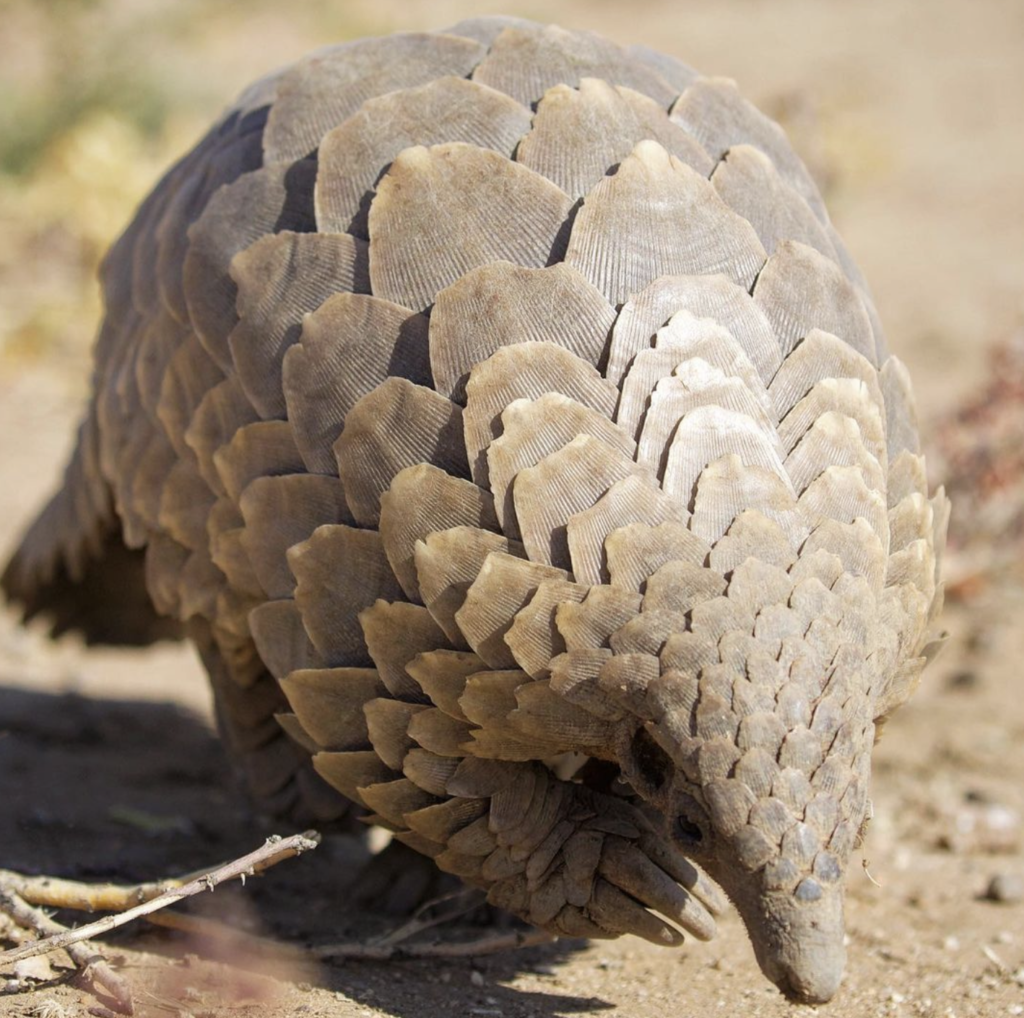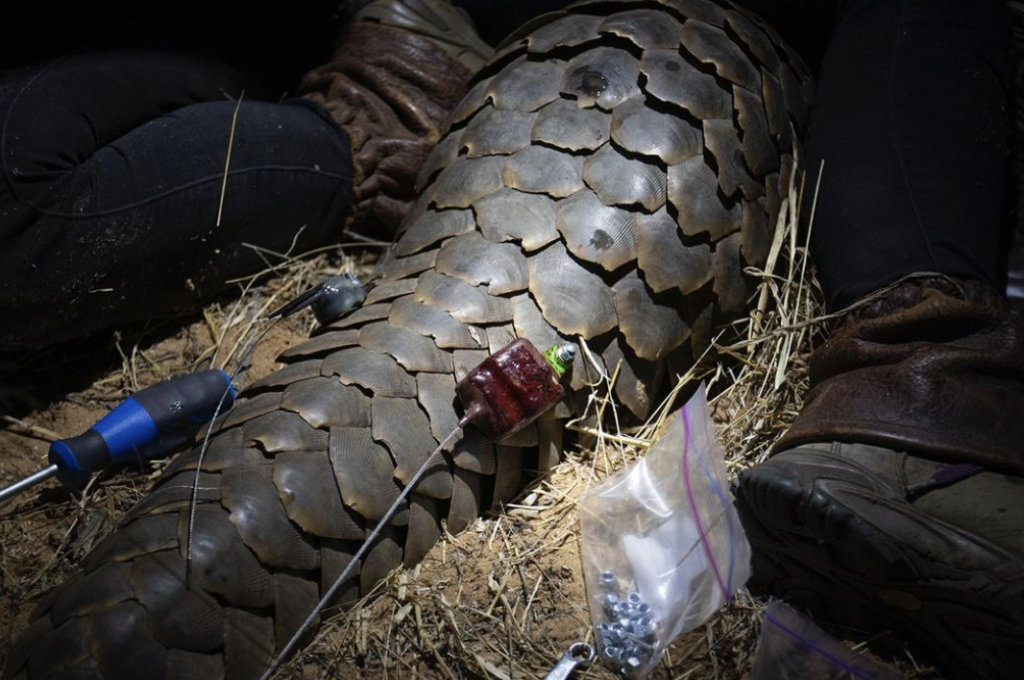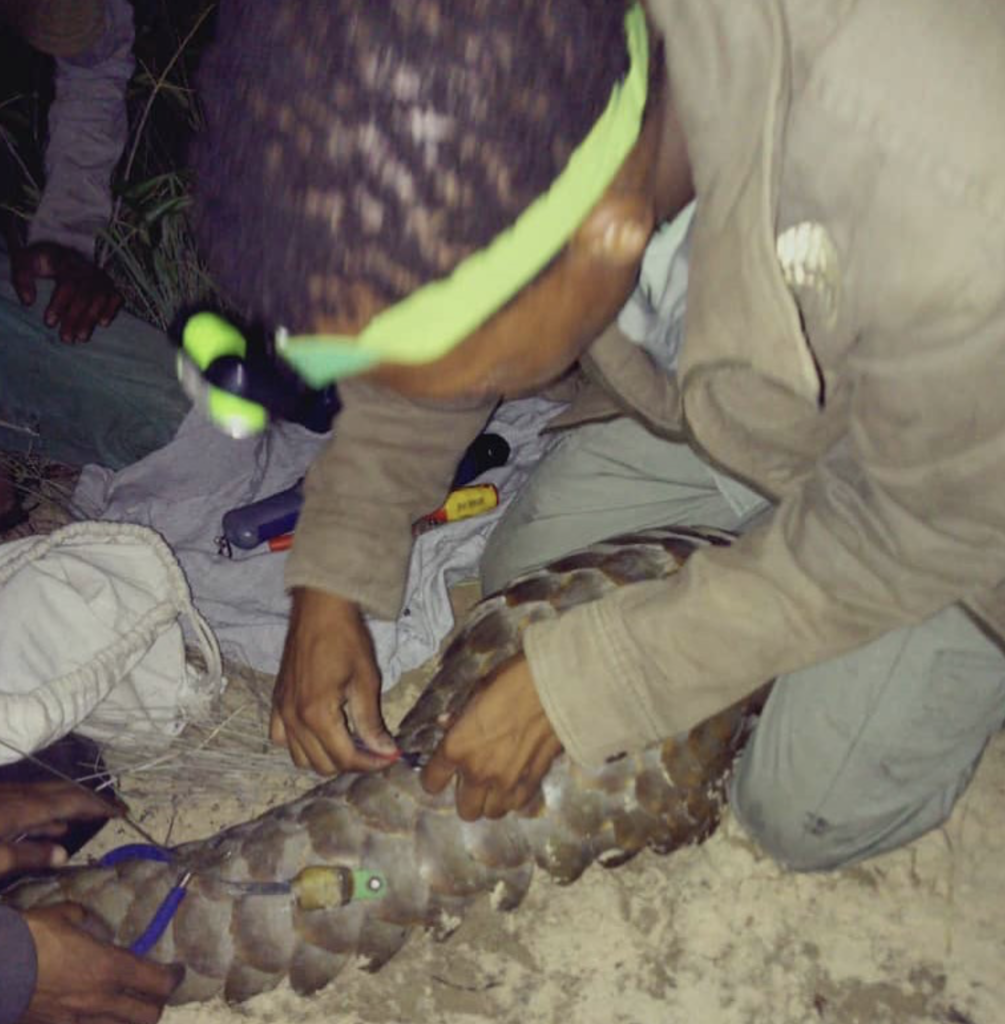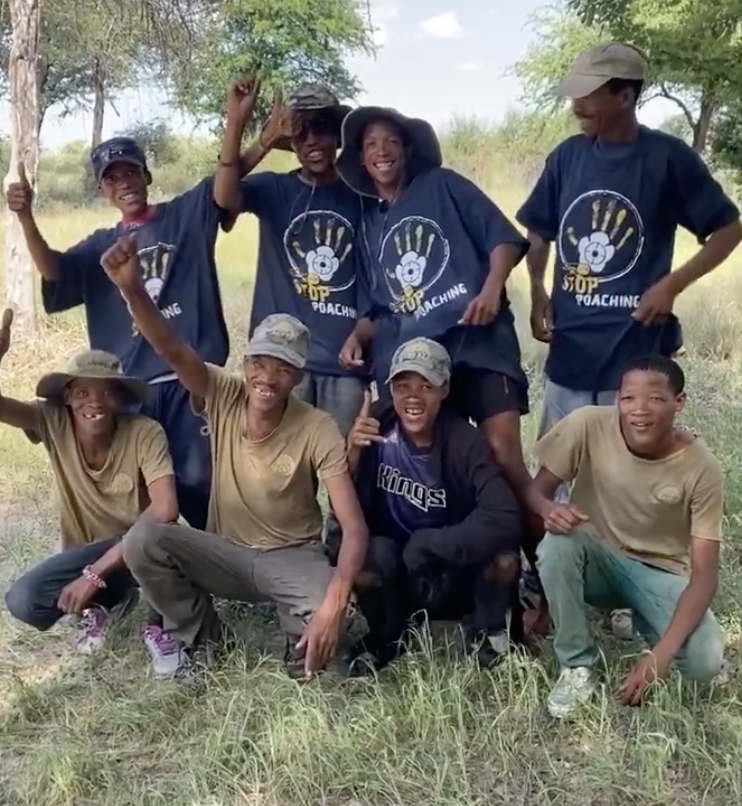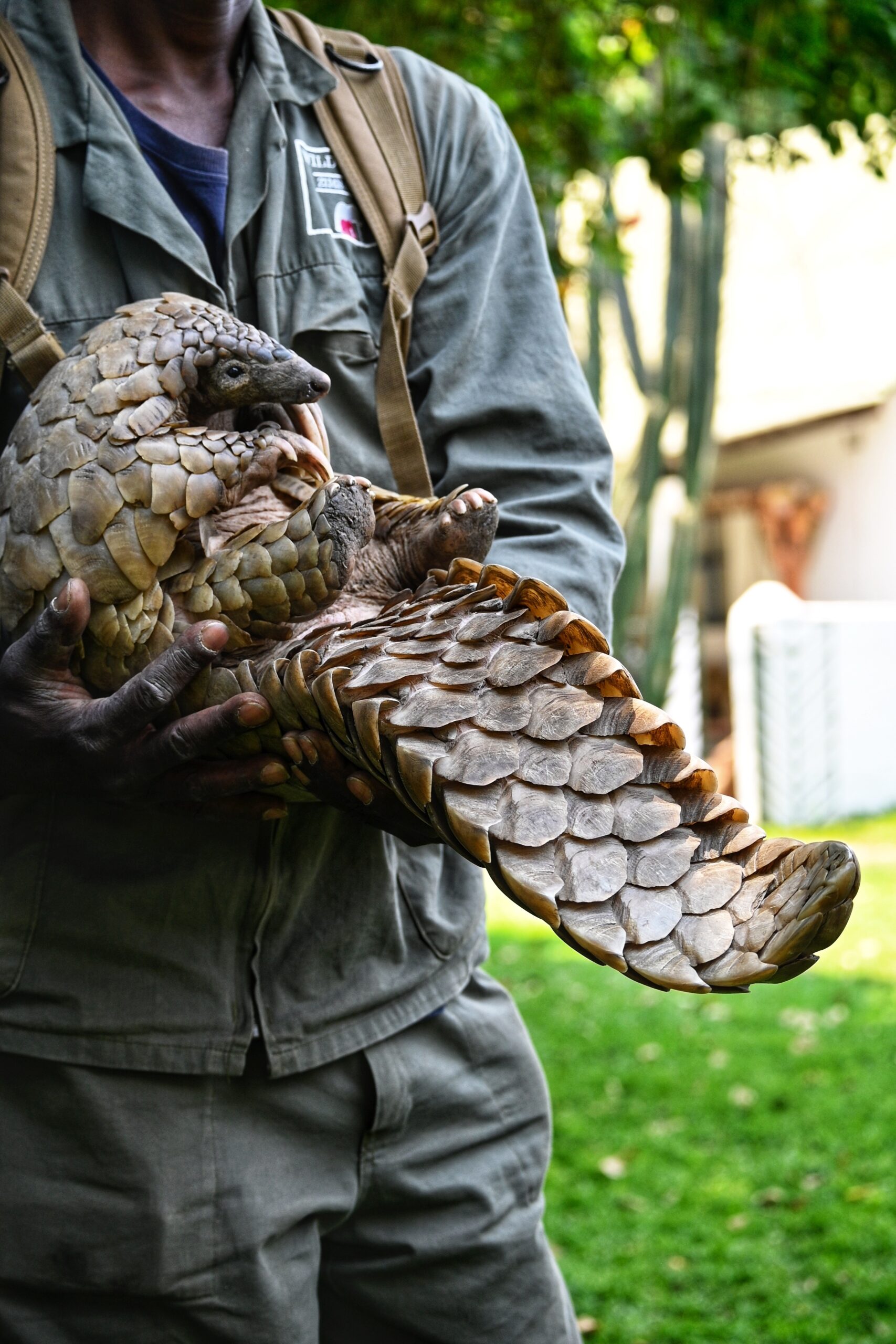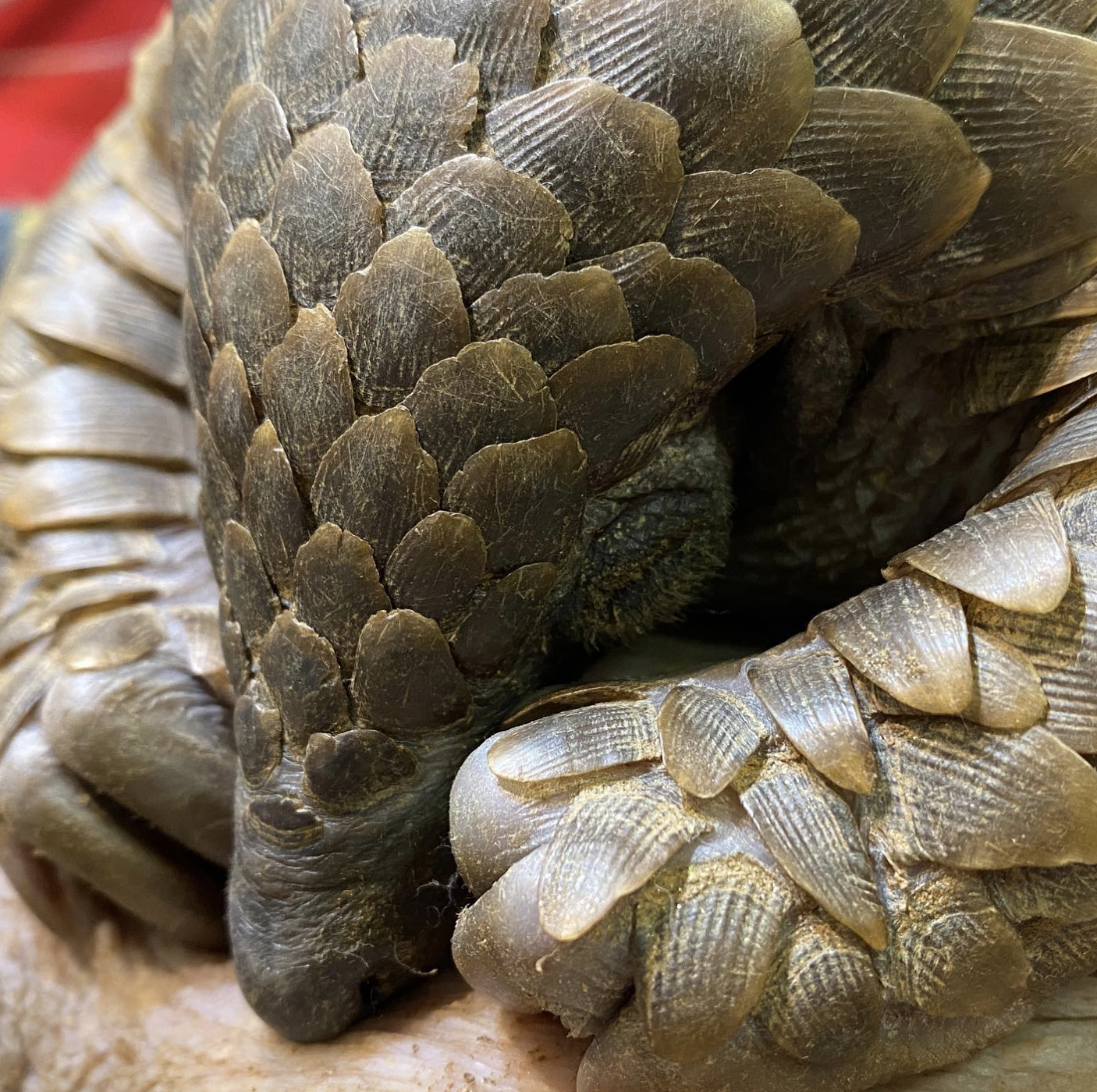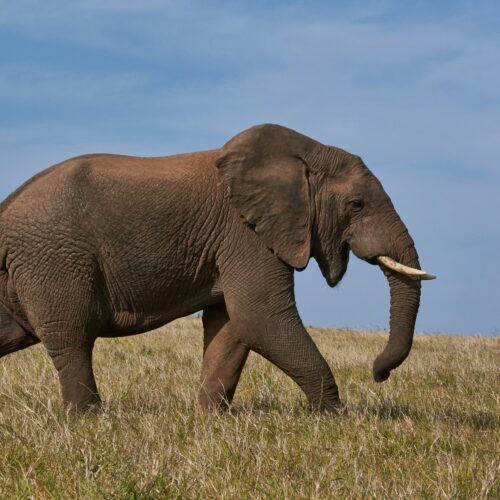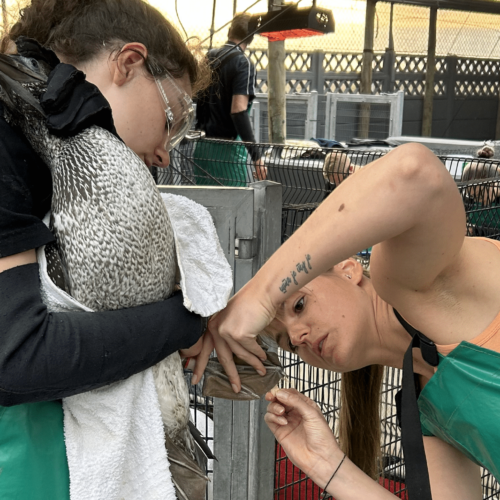Due to the shy nature of pangolins, research surrounding their conservation remains largely underdeveloped. Being nocturnal creatures, who spend much of their time in burrows, presents certain challenges for building a strong understanding of these animals’ behaviours. The most interaction pangolins have with humans is through the wildlife trade, where their defence mechanism of rolling up into an armoured ball makes them entirely vulnerable to poachers, despite being able to withstand the bite of a lion. If ‘lucky’, the pangolins being captured may be intercepted. But it has been repeatedly reported that, although we know very little of the emotional trauma pangolins face, it’s evident in their behaviour after rescue, including symptoms of trauma, depression, and aggression.
Many intercepted pangolins struggle to ever make a full recovery. At the root of this issue is that, without a comprehensive understanding of pangolins in their natural habitat, their successful rescue, recovery, and rehabilitation is severely hampered. It’s clear that a degree of guesswork regarding the right environment to effectively rehabilitate a traumatised pangolin does not work.
Pelorus Foundation’s local project partner, PCRF works predominantly with the San Bushmen, indigenous hunter gatherers, in the Nyae Nyae Conservancy, as well as supporting post-release monitoring of live confiscated pangolins across Namibia. This work aims to engage the local community to protect pangolins through sustainable livelihoods and pride, and while doing so, build up one the world’s most established databases on the ecology of pangolins in the wild.
When translated into action, stories from the field display the impact Pelorus Foundation’s project partners are having on altering the of the trajectory of pangolins looming extinction.



